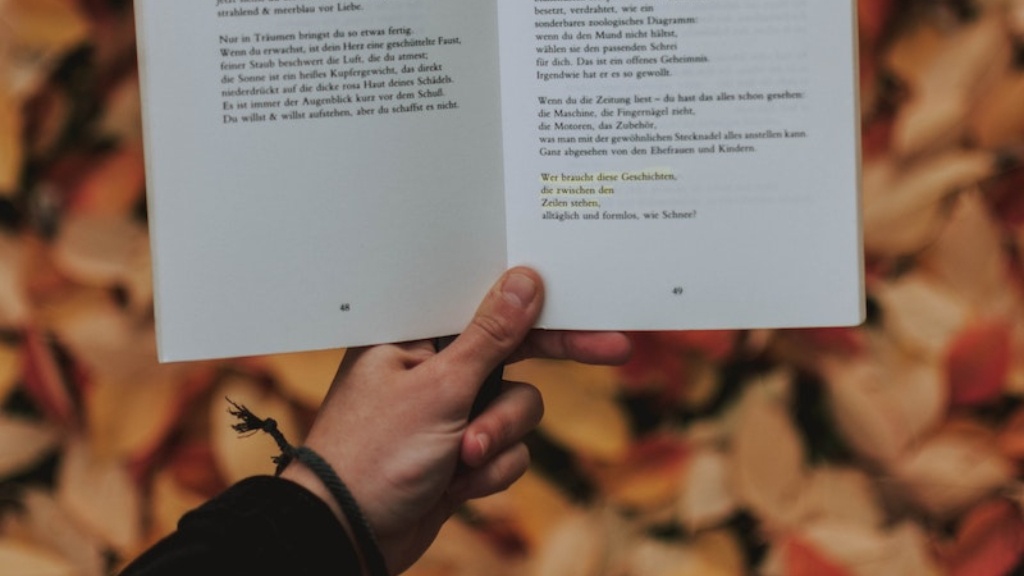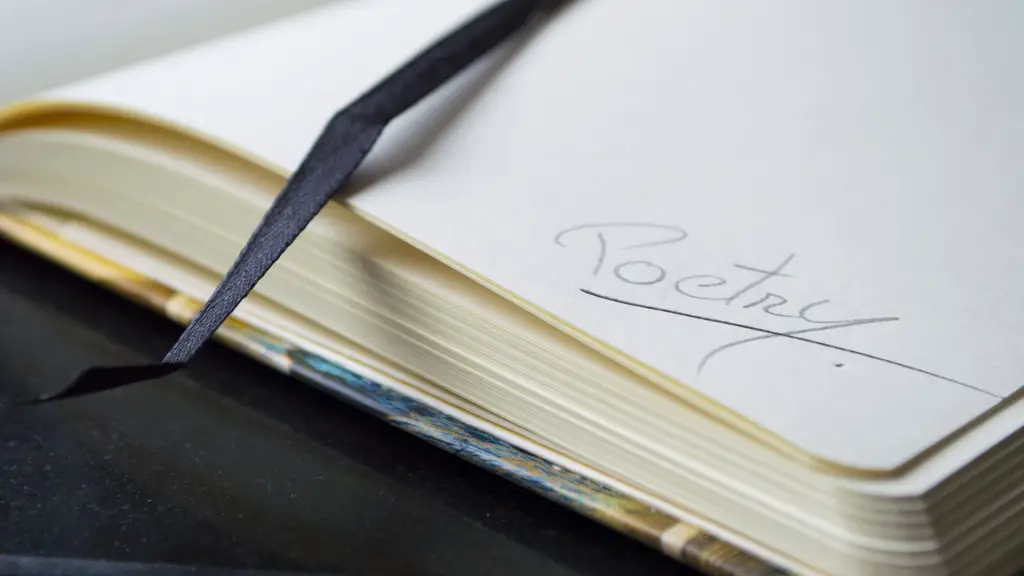Poetry writing is an art form that has been practiced for centuries all over the world. It has been an effective way to express emotion, explore ideas, and tell stories. A poem can be a small as a few words or as long as an epic story. Even though poems are written in many different forms, they all have some common elements.
Rhythm and meter are what gives a poem its musical quality. Most poems use different combinations of line lengths and the arrangement of words to create a musical pattern, from the long and rolling beats of a slow sonnet to the staccato raps of a slam poem.
Imagery and symbolism are also important elements of poetry writing. An author may draw upon a range of sensory details to create vivid pictures in the reader’s mind, or use symbolism to convey a deeper message that is not apparent on the surface.
While authors often manipulate the structure and language of their poetry, there is still a certain amount of discipline and planning required to create an effective poem. Poets consider several factors when writing, including structure and form, subject matter, and the poem’s overall purpose. To write a successful poem, poets must also consider their audience and how to engage and captivate them.
The language of poetry is often crafted with care. Poets often choose to use carefully chosen words and poetic devices such as alliteration, internal rhyme, and metaphor to give their work an added punch and draw the reader in. Most of all, poetry is about finding the right words to express an idea or emotion in a way that is captivating.
Despite its complexities, poetry is an accessible form of writing for anyone with a desire to express themselves or explore their emotions. Poetry can make an intense experience or thought happen in a shorter amount of time than prose, as a well-crafted poem can help the reader to travel to another world in just a few lines.
Elements of Poetic Form
Poetry is most commonly written in formalized verse structures, with a pattern of meter and rhyme. One of the most popular forms is the sonnet, a 14-line poem that utilizes a strict rhyme and meter. Other forms include villanelles, ballads, and odes, each with its own unique set of rules that must be followed in order to achieve the desired effect.
The structure of a poem, coupled with its meter and rhyme, can be powerful tools for expressing an emotion or conveying an idea. A poet can use these tools to create a sense of rhythm or to emphasize a particular line or phrase. Furthermore, by following a formal structure, the poet can play with their content and the structure to leave a lasting impression on the reader.
Along with the basic structure of a poem, the language and style are also important. Poets have the power to choose from a seemingly infinite variety of words to evoke vivid imagery and feelings. Word choice is critical in writing poetry, as each line is significant and must work together to create a unified whole.
Finally, poets must consider delivery and content when creating their work. Some poems are meant to be read aloud, while others are better read silently. In addition, the subject matter of the poem can vary greatly, from the mundane to the profound.
The Art of Poetry Writing
Poetry writing is an art form that has been practiced for centuries, and its popularity continues to this day. While some poets pursue their craft out of a passion for expression and exploration, others enjoy the challenge of creating powerful and impactful works of art.
It takes more than just words to write a poem. Poets must have the technical skills to use the structure and language of their pieces to create the desired effect. This requires a good knowledge of meter, rhyme, and poetic devices, as well as the ability to use these elements to their advantage.
In addition, poets must also be able to craft their poems with a deep understanding of language and an ear for rhythm. Poets must also use their imagination and creativity to explore new and unusual ideas and find ways to express them.
Finally, poets must be able to write with empathy and insight. Good poetry captures the human experience and communicates it to the reader. Poets must be able to find the right words to express their ideas in a way that captures the essence of what they want to convey.
The Benefits of Poetry Writing
Writing poetry can be a very rewarding experience for those who choose to pursue it. It offers its practitioners an emotional outlet, a way to explore and express their feelings, and an opportunity to express themselves creatively.
Writing poetry can also help to boost confidence and increase one’s creativity. By experimenting with poetic forms and styles, poets can gain a deeper understanding of language and explore themselves on a more profound level.
Poetry writing can also be a useful tool for personal development and growth. Writing can help poets to better understand their thoughts and emotions and find ways to express them. Moreover, the thoughtful consideration of words and imagery can help poets to better understand the world around them and learn to appreciate the beauty of nature and life.
Finally, poetry can be a powerful tool for communication with others. By writing and sharing their work, poets can create a lasting impact on their audience and have a positive effect on the world around them.
The Power of Poetry Writing
At its core, poetry is about the power of words and the influence of language. A poem can be used to inspire and uplift, to elucidate a concept or evoke emotion. It can be used to heal, to protest, to console, and most importantly, to connect.
Poetry can be transcendent, transcending the physical realm and entering a realm of the spiritual. It can be used as an instrument of transformation, to help an individual on a journey of spiritual growth and exploration.
Poetry also has an important role to play in promoting social justice. Poets have used their creativity to give voice to those who have been silenced and neglected, and to let the world know that their stories matter.
Finally, poetry can be used to bridge the gaps between cultures and nations. With the right words, a poem can reach across the barriers of language, culture, and history and open the reader’s heart and mind to new ways of thinking.
Conclusion
Writing poetry can be a powerful and moving experience. Poetry has the ability to connect us to our emotions and awaken us to the beauty and wonder of life, and it can also be used to protest against injustice and stand in solidarity with those in need. Poetry has been an invaluable tool for communication and expression for centuries, and its power remains undiminished.





